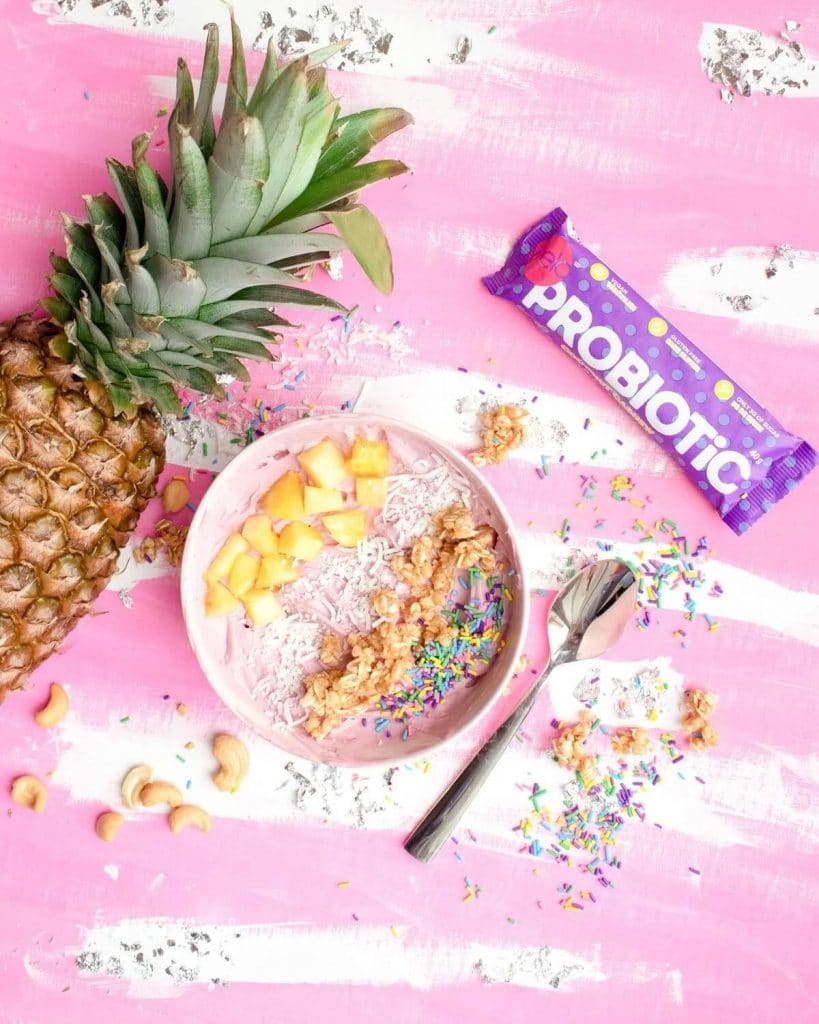OK, we know that most of you are scratching your heads already. We know about skin care, but what is microbiome care? Before we get into how to care for your skin’s microbiome, let’s take a closer look at what that term actually means.
The skin microbiome is also known as skin flora. What both these terms refer to is the huge number (trillions, to be exact) of bugs that live on our skin. Yes, bugs, but these are good bugs!
On your skin right now (hopefully), there are over a thousand different kinds of bacteria and around eighty different types of fungi. Some of these little critters also take up residence in your gut microbiome, but that’s a story for another time.
You’ll find Strep, Staph, and Candida species in your gut and on your skin, as well as Bifidobacterium and Lactobacillus, but these are primarily on the face.
All these little creatures living together in harmony is what you want. Your personal microbiome will change depending on your location or eco-niche, depending on varying light conditions and different areas of your skin. It will also differ based on age and gender.
Next time you’re feeling lonely, just remember that you’re not alone! You’ve got lots of little friends living on your face and the rest of your skin who want and need your attention.

What Does It Do?
So now that we know that bugs are living rent-free on your skin, the question is: why should they get to stay? The answer; that without them, our skin doesn’t work correctly. Our microbiomes do many things for us. Firstly, they communicate with our immune system through our subcutaneous (beneath the skin) fat layer.
They let it know if anything scary happens to our skin or in the air around us. The microbiome protects our skin from getting infected if it is well maintained. The good bugs crowd out the bad ones, and its environment should be an acidic environment that doesn’t allow many bad bacteria to flourish.
The bugs in our microbiome communicate and help keep each other in line when something is wrong. They also protect our skin from potentially harmful environmental factors and help to heal wounds.
Can The Microbiome Be Compromised?
YES, and it very often is. Two factors are important in maintaining the balance of your microbiome: what you put into your body and what you put onto your skin.
The gut-skin axis, a reasonably new term, refers to balancing what’s in your stomach and what happens on your skin. Research on this topic has been relatively limited so far. Still, it’s clear that not eating well can influence acne, glycemic control, the levels of lipids (liquid fat) in your tissue, inflammation, and many other things. Trying to keep your skin completely clean and oil-free is also going to damage the microbiome.
Using any product containing sulfates or too much cleansing will create an alkaline environment on your skin and allow bad bacteria to flourish. We aren’t suggesting that you never wash or care for your skin, just that you take care when you do. Regular exposure to most germs and skin bacteria is good because we need to maintain a balance instead of tipping the scales too far in either direction.
Modern life, in general, is problematic in terms of caring for our skin biome. Too much fast food and too much air pollution get at us from the inside and the outside. If the environment outside your skin is bad, your skin will be affected. If the environment inside your body is bad, your skin will be affected.
How Do I Keep The Balance Of My Microbiome?
This is going to be shocking, but the biggest answer here is just to leave your skin alone. Too much makeup, too much washing, and too many skincare products throw things entirely off-balance in the microbiome. Yes, care for your skin, but don’t overdo it.
Eat well and take care of your gut health. Get your daily allowance of proteins, carbohydrates, and colorful or green veggies. Drink the recommended amount of water daily, and you’re off to a great start! If a particular food has a terrible influence on your skin, remove that food from your diet completely and substitute something else.
Take a probiotic every day to look after your gut. Drinking kombucha has also been proven to help with your gut balance. Be careful about the kind of soaps and sanitizers that you use. Finding a sanitizer with aloe in it can balance out the drying effect that sanitizers can have and stay away from soaps or cleansers with sulfates. Remember that it’s GOOD to sweat! Working out leads to better skin and body health overall, but it’s also an essential part of your skin’s function. Keep stress to a minimum, which we know is easier said than done. Remember that your mental state affects your physical condition too!

Final Word
It’s all about the balance! Looking out for your skin’s microbiome just takes a little bit of time and care, so start your microbiome routine today!




